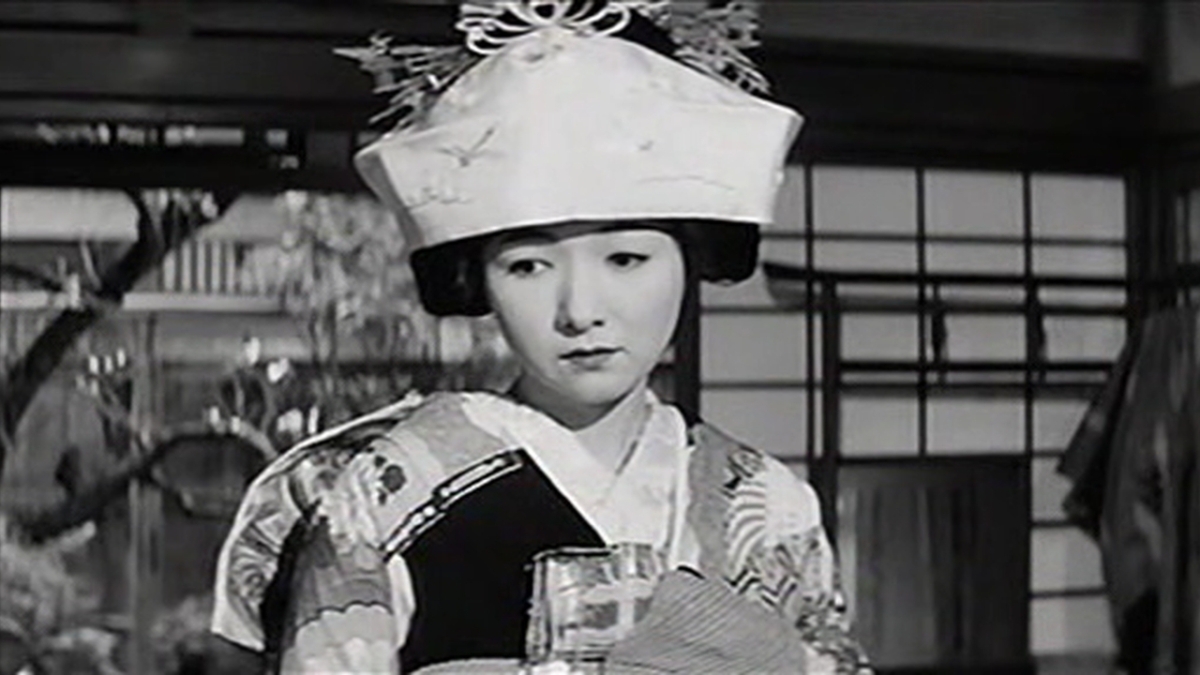Getting off to an interesting start, A WOMAN’S STORY eventually feels somewhat straitjacketed. It’s a family drama spanning two generations, largely told in flashbacks and set against the backdrop of Japan’s wars of the 30s and 40s, centering on a hairdresser named Nobuko (Hideko Takamine), whose wartime and postwar hardships hang over her present-day dealings with her son Kohei (Tsutomo Yamazaki, later a regular in Juzo Itami’s films, and memorable as the father in Shinji Somai’s WAIT AND SEE) and the bar girl he marries, Midori (Yuriko Hoshi, the daughter in AS A WIFE, AS A WOMAN). The script is by Ryozo Kasahara, who also wrote Naruse’s more modest and effective THE APPROACH OF AUTUMN.
Naruse appears to have had some money for this project, and he certainly brings a lot to a narrative format that is unfamiliar to him. The story is dramatically focused, paced to suggest a grand scale, and much more event-filled than usual for Naruse, with important characters keeling over left and right in the opening reels. The fatality-filled subject matter combines well with the director’s characteristic interest in unglamorous personality defects: it’s interesting to see Naruse’s parade of sullen, self-absorbed characters turning up dead at random times, without much dramatic preparation. The widescreen compositions, preponderantly in long shot, look great, and Naruse takes care with the visual and aural texture of the film’s constantly changing cityscapes and countrysides: at no point does one sense his interest flagging. The film’s most beautiful scene comes early: embarrassed at first when instructed to bid her father (Kamatari Fujiwara) a formal goodbye before her wedding, Nobuko does so with a sudden surge of emotion, only to have the uncomfortable father dismiss the gesture.
Before long the film feels rather flat, though. Naruse manages to temper the film’s tearjerking potential by keeping his usual focus on the mundane, but the noisy plot doesn’t leave much room for subtext. And, though the script has dramatic urgency, it’s not very nuanced in its expression of character issues. Its chief character-based goal – to justify Nobuko’s fierce opposition to Kohei’s marriage to Midori – is achieved by the simplistic device of repetitive flashbacks of sluts damaging Nobuko’s life. The interesting angle of Nobuko’s oddly loveless marriage to Koichi (Akira Takarada) actually works against this central goal and is not prominent, though it seems to attract Naruse’s interest. And the subplot of the unconsummated love of Nobuko and Koichi’s friend Akimoto (Tatsuya Nakadai) serves only to amp up sentiment. It’s odd that Nakadai, a great and subtle actor, is so often the least interesting character in Naruse films: the director seemed to regard him as little more than a pretty boy.
Though the material is uncooperative, Naruse’s sensibility is continuously evident, right up to the lovely and characteristic final scene that cements the bond between Nobuko and her mother-in-law Kimiko (Naruse regular Natsuko Kahara). I suspect he had high artistic hopes for the film.
